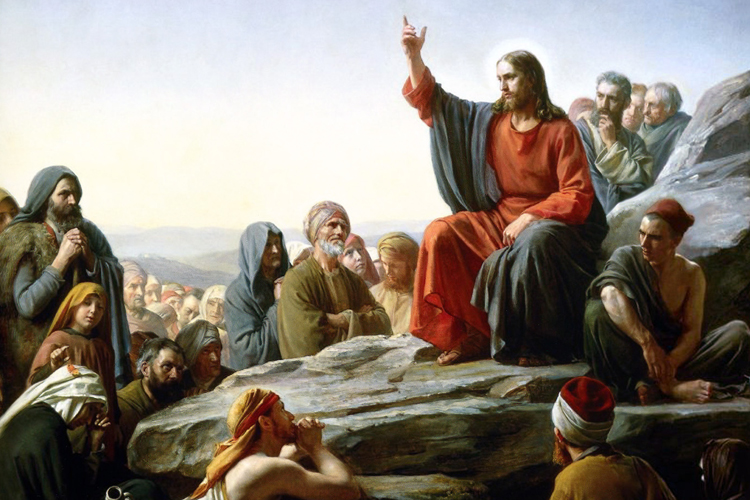What is Grace?
Grace refers to those gifts that bring about a supernatural friendship with God. Supernatural means an elevation of human nature beyond what it is naturally capable of attaining.
Grace is a sharing in the life of God, as his adopted children, making us heirs to the kingdom of heaven. This life of grace far exceeds the mere forgiveness of our sins and our worldly improvement as human beings. In this new and supernatural life we become partakers of the divine nature, co-heirs of Christ and temples of the Holy Spirit.
Grace is first bestowed in this present life. It is fulfilled in the sharing of God’s own happiness in the glory of heaven.
My dear friends, we are already God’s children, but what we shall be in the future has not yet been revealed. We are well aware that when he appears we shall be like him, because we shall see him as he really is. 1 John 3:2
There are two main kinds of grace. Sanctifying grace makes us children of God. Actual grace refers to the particular prompts and assistance that God gives us to help us act in ways leading to holiness. All grace comes to us from God by means of Jesus Christ and his Church. The sacraments, in particular, plant, nourish or restore the life of grace in us.
The life of grace
Just as natural human life develops towards maturity, so too does the life of grace. As grace matures, building on our human nature, it also brings this nature to its own perfection.
| LIFE OF NATURE | LIFE OF GRACE |
| Natural birth | Baptism (supernatural birth) |
| Philosophical virtues (e.g. prudence) | Theological virtues (faith, hope, charity) |
| Food and drink | The Eucharist |
| Human society | The Church |
| Growth to adulthood | Growth in holiness |
| Human happiness | The vision of God |
Mistakes regarding grace
Pelagianism is the belief that we can save ourselves. In this mistaken understanding, ‘grace’ is only the forgiveness of sins and the example of Christ. Determinism holds that ‘grace’ determines absolutely the eternal outcome of our lives and that our free wills have no significant role. Modernism holds that ‘grace’ is the same as nature. It claims that by nature we are one with God, or part of God or gradually becoming ‘God’.
What are the Beatitudes?
The Beatitudes are eight states of blessedness proclaimed by Christ in the Sermon on the Mount. These states manifest the life of heaven on earth, bringing a foretaste and promise of joy even amid earthly suffering.
The Beatitudes
Blessed are the poor in spirit, for theirs is the Kingdom of Heaven.
Poverty of spirit enables us not only to use the goods of this world (such as riches and honours) in moderation, but to be willing to surrender all of them joyfully for the sake of the kingdom. (Mt 19:21)
Blessed are those who mourn, for they shall be comforted.
Mourning might not seem blessed because earthly joys are not themselves evil, although they can still come to dominate our lives. However, by grace we set our hearts on heaven and are dissatisfied with anything less. (Jn 16:20)
Blessed are the meek, for they shall inherit the earth.
Meekness refuses even a proportionate and just response to evil. Jesus showed us the meaning of meekness when he submitted to being scourged, mocked and crucified without striking back. (Lk 6:29)
Blessed are those who hunger and thirst for righteousness, for they shall be satisfied.
Hunger and thirst for righteousness goes beyond doing our duties to our neighbour. It is an eager desire, like an appetite of hunger and thirst, to do works of mercy, so that those around us and ourselves grow in holiness. (Mt 6:31-33)
Blessed are the merciful, for they shall obtain mercy.
Mercy exceeds human benevolence and natural pardon for wrongdoing. It is a lavish bestowing of our time and goods on those who cannot repay us. It is also the gift of forgiving even outrageous wrongs against us. (Mt 5:43-44)
Blessed are the pure in heart, for they shall see God.
Purity of heart is far more than preserving oneself from the stain of sin. It is the gift of a God-like heart, to love God for his own sake with a single minded clarity and passion, and to love others as God loves them. (Jn 13:34-35)
Blessed are the peacemakers, for they shall be called sons of God.
Peacemaking goes beyond tranquil good order in earthly relations. It is the gift of establishing unity with others in a friendship founded on the desire for their supernatural good, that is, to reach our home with God in heaven. (Jn 14:27)
Blessed are those who are persecuted for righteousness’ sake; be glad, for your reward is great in heaven.
Persecution refers specifically to the trials that Christians face for preaching and living the Gospel. It blesses us in that it conforms us to Christ crucified, and holds the promise of great reward in heaven. (Jn 16:33)
This article is originally from ‘CREDO: The Catholic Faith explained’ by CTS.
